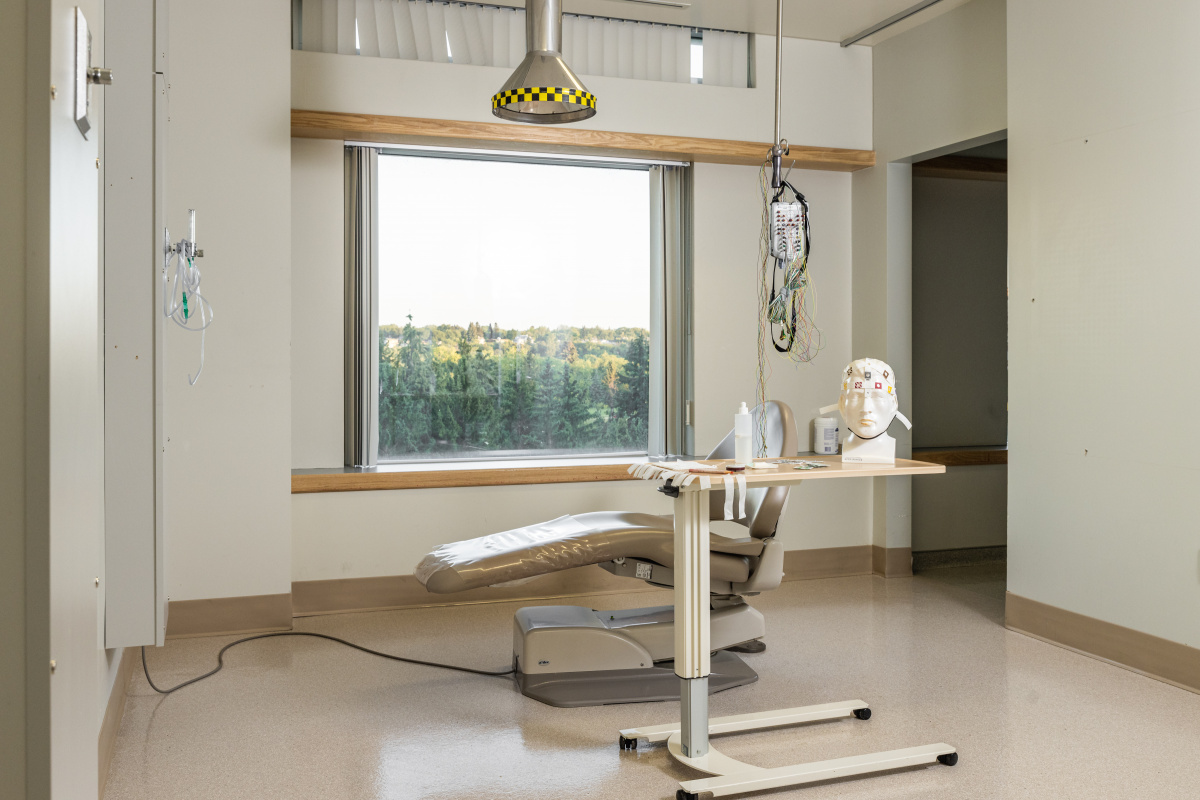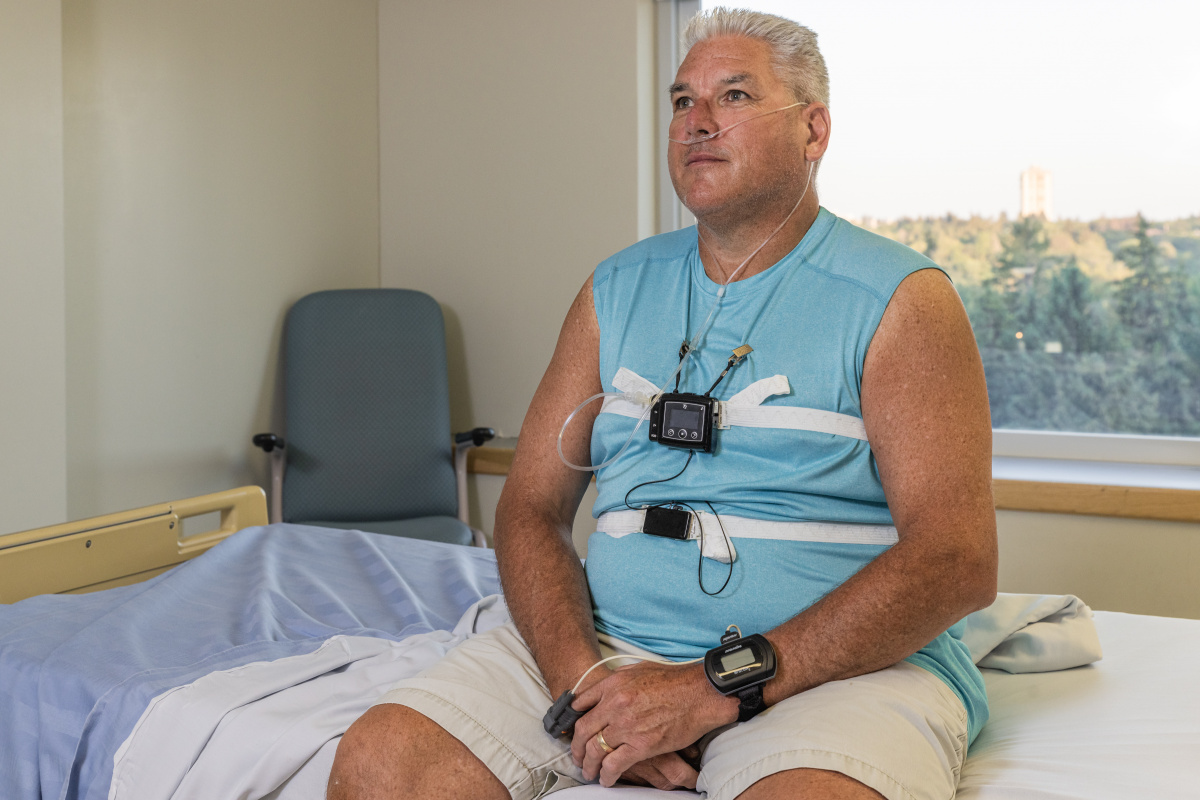Diagnosis
It is important to get a proper diagnosis if you feel like you may have sleep apnea. Speak with your family doctor about your concerns and ask for a diagnosis.

Polysomnography (PSG)/Level 1 Testing
The best method of diagnosing sleep apnea and other sleep problems is an overnight test in a sleep lab. This test is called polysomnography (PSG) or Level 1 Test. During this test, you will sleep in the lab, while being monitored. You will be connected to wires that gather data about your sleep stages and cycles, oxygen levels, heart rate, body movements and breathing patterns. A Certified Sleep Physician or sleep doctor (a specialist who is trained in sleep medicine) will explain the results and suggest treatment, if needed. Saskatchewan has PSG testing in both Regina and Saskatoon; testing needs a referral from a doctor or nurse practitioner.

Home Sleep Apnea Test (HSAT)/Level 3 Testing
As public awareness of sleep apnea grows, so does the demand to be tested.
In some areas, there can be very long wait times for testing at the sleep lab. If your family doctor believes that you may have sleep apnea but you have no other serious illnesses, a HSAT may be used. HSAT, also referred to as a Level 3 Test, can be used at home to assess information about your oxygen levels and breathing patterns. These are portable monitors that record information about your breathing while you are sleeping at home in your own bed. You will be shown how to connect to the machine at home. When completed, the machine will be returned to the clinic. The results should be interpreted by a sleep doctor. If it is discovered that you have sleep apnea, follow-up is needed to decide the best treatment for you.
Most provinces have publicly funded sleep disorder centres that provide no-cost sleep lab and home testing services, most often by referral to a sleep doctor. Testing for sleep apnea may be offered by private oxygen or sleep apnea companies in certain provinces. Your family doctor may refer you to one of these companies for testing or equipment support and sales. A certified sleep doctor should be involved in the interpretation of any testing completed privately.
Saskatchewan has multiple companies who do this testing, call around to investigate costs for testing. Review the Saskatchewan CPAP Companies list.
